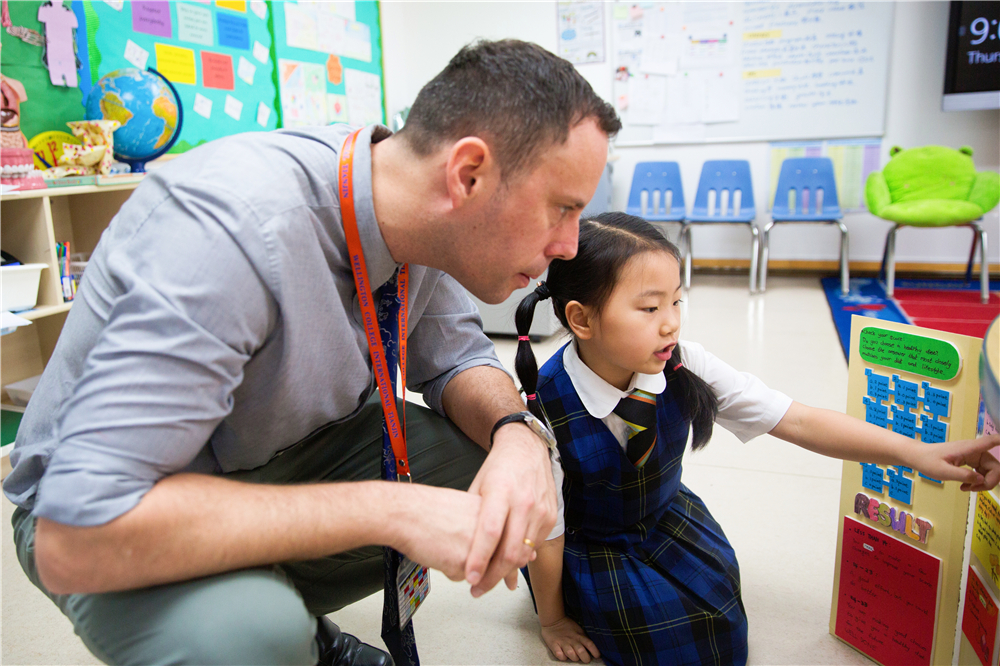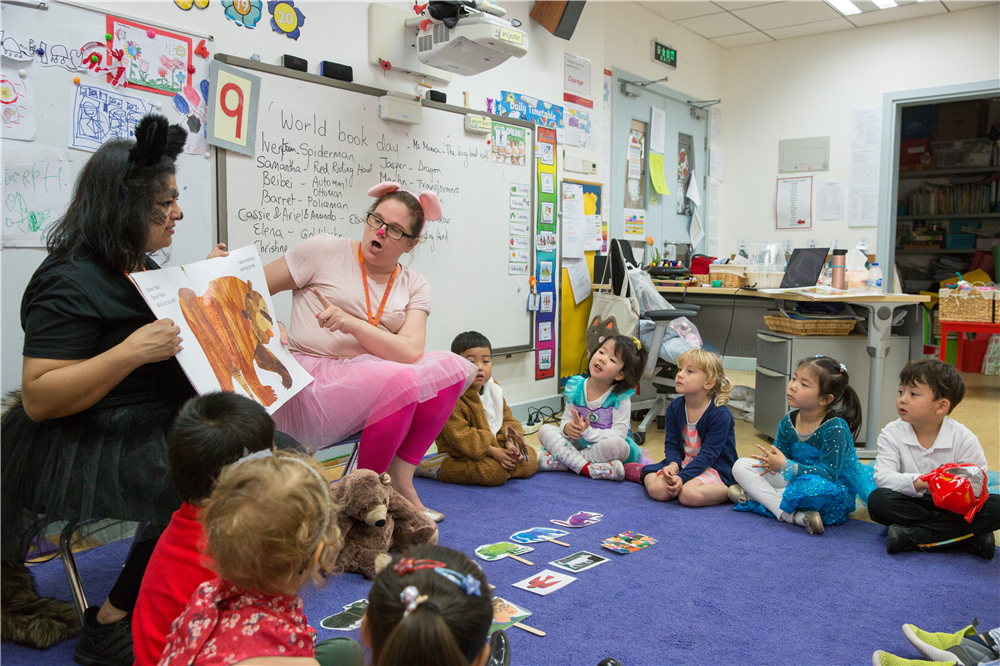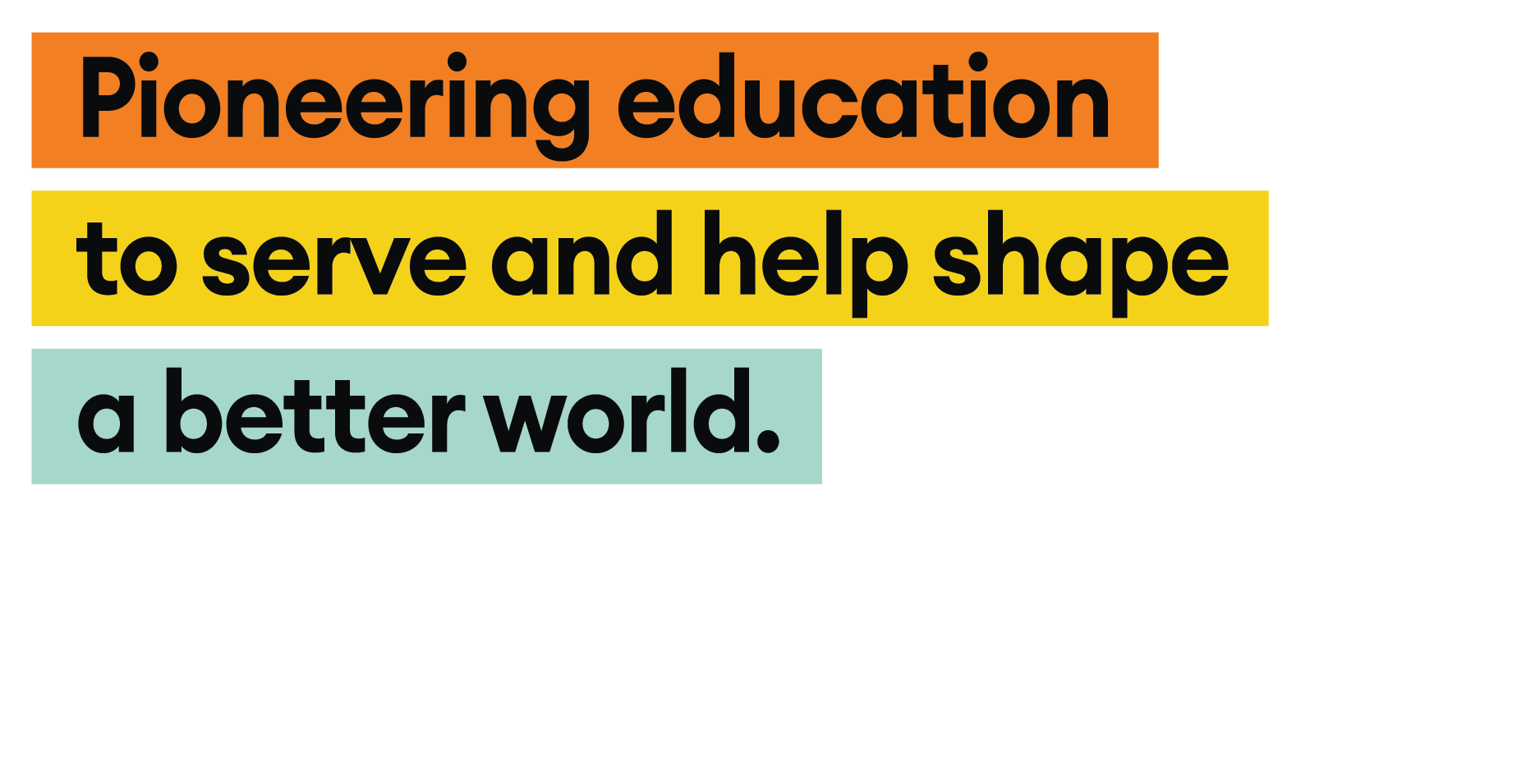Insights丨The Fascinating Challenges of Reading Acquisition
04 Dec 2019
In this Educational Insights Series, experts from across the Wellington College group give advice, practical help and tips for parents who are keen to give further support for their children's learning. In this article from the series, Max Forster from Wellington College Tianjin discusses about "The Fascinating Challenges of Reading Acquisition ".

 One such “wow” moment came when reading the research of Keith Stanovich, who has written about the concept of “Matthew Effects” in reading acquisition. “Matthew Effects” is a term coined to refer to the idea of the richer getting richer while the poor get poorer. Stanovich applied this concept to reading acquisition to show that an ever-increasing learning gap can occur for students who have a delay in learning how to read. If a child learns to decode and read very quickly, they will then have access to a wide range of learning, through novels, science books, geography books, history books and so on. Furthermore, it is thought that around 75% of our vocabulary comes through reading, so this successful reader will, also, constantly increase their vocabulary through reading. Meanwhile, the student who is struggling to learn to read, cannot access this learning and therefore, doesn’t only become behind their peers in reading but across all other subjects too. Once this student does finally crack the alphabetic code and can read successfully, they will have a learning deficit that can only be recovered by reading at a greater rate and volume to their more advanced peers, to catch up for their missed earlier learning.
One such “wow” moment came when reading the research of Keith Stanovich, who has written about the concept of “Matthew Effects” in reading acquisition. “Matthew Effects” is a term coined to refer to the idea of the richer getting richer while the poor get poorer. Stanovich applied this concept to reading acquisition to show that an ever-increasing learning gap can occur for students who have a delay in learning how to read. If a child learns to decode and read very quickly, they will then have access to a wide range of learning, through novels, science books, geography books, history books and so on. Furthermore, it is thought that around 75% of our vocabulary comes through reading, so this successful reader will, also, constantly increase their vocabulary through reading. Meanwhile, the student who is struggling to learn to read, cannot access this learning and therefore, doesn’t only become behind their peers in reading but across all other subjects too. Once this student does finally crack the alphabetic code and can read successfully, they will have a learning deficit that can only be recovered by reading at a greater rate and volume to their more advanced peers, to catch up for their missed earlier learning.
 This insight into “Matthew Effects” should therefore make us all the more determined to get all children reading as quickly as possible. Indeed, the Literacy programme run here in the Nest and Junior School, Read Write Inc, is very cleverly designed to systematically build up the children’s decoding capability until they can successfully decode nearly any word. However, despite our best efforts, there will always be students who struggle to crack the alphabetic code, and have a delay in their reading development. The reason for this, brings us towards the next “wow” moment I came upon during my study: the knowledge that learning to read, is not a natural process and requires a rewiring of our natural perception, in order to take place. Indeed, human beings have only developed written language within the last 5,000 years. When we consider that there have been human civilizations that have existed for tens of thousands of years without ever developing a writing system; we can see that human beings are not naturally disposed towards reading and writing. Indeed, neurologists have conducted scans of brain activity and found that there are certain reading-specific neural connections that are made when readers attend to the individual letters in words to decode. Since reading requires unnatural cognitive activity in this way, it is not so surprising that approximately 25% of all children will find it difficult to learn to crack the alphabetic code and read successfully.
This insight into “Matthew Effects” should therefore make us all the more determined to get all children reading as quickly as possible. Indeed, the Literacy programme run here in the Nest and Junior School, Read Write Inc, is very cleverly designed to systematically build up the children’s decoding capability until they can successfully decode nearly any word. However, despite our best efforts, there will always be students who struggle to crack the alphabetic code, and have a delay in their reading development. The reason for this, brings us towards the next “wow” moment I came upon during my study: the knowledge that learning to read, is not a natural process and requires a rewiring of our natural perception, in order to take place. Indeed, human beings have only developed written language within the last 5,000 years. When we consider that there have been human civilizations that have existed for tens of thousands of years without ever developing a writing system; we can see that human beings are not naturally disposed towards reading and writing. Indeed, neurologists have conducted scans of brain activity and found that there are certain reading-specific neural connections that are made when readers attend to the individual letters in words to decode. Since reading requires unnatural cognitive activity in this way, it is not so surprising that approximately 25% of all children will find it difficult to learn to crack the alphabetic code and read successfully.
 So what it is it that is keeping these 25% of learners from cracking the code? This brings us to my third “wow” moment. Researchers have discovered that there is a test that can be given to pre-readers that will very accurately predict their later success with reading – and it is not related to gender, an IQ test, ability to recite the alphabet, exposure to children’s literature or educational level of their parents. It is in fact, an assessment of phonemic awareness. This tests the ability of children to isolate “sounds” within oral language. For example, if you ask a five-year-old to change the first sound of “cat” and they reply with “rat” this means they are successfully able to isolate initial letter sounds, and probably means they will make quick progress when learning to read. The Read Write Inc programme has a pre-reading programme for the Nursery and Reception Years, where the children develop their phonemic awareness skills.
So what it is it that is keeping these 25% of learners from cracking the code? This brings us to my third “wow” moment. Researchers have discovered that there is a test that can be given to pre-readers that will very accurately predict their later success with reading – and it is not related to gender, an IQ test, ability to recite the alphabet, exposure to children’s literature or educational level of their parents. It is in fact, an assessment of phonemic awareness. This tests the ability of children to isolate “sounds” within oral language. For example, if you ask a five-year-old to change the first sound of “cat” and they reply with “rat” this means they are successfully able to isolate initial letter sounds, and probably means they will make quick progress when learning to read. The Read Write Inc programme has a pre-reading programme for the Nursery and Reception Years, where the children develop their phonemic awareness skills.
 The final “wow” moment that I would like to discuss, came from learning about theories of cognitive capacity and how they relate to reading acquisition. When children are trying to decode unfamiliar words, a lot of their brain power or “cognitive capacity” is used, leaving little room for the comprehension of the text. Children’s reading will need to become more automatic and fluent for them to be able to successfully comprehend the text. For this reason, the Read Write Inc programme puts great emphasis on progressing from “sounding out” words to automatic recognition of words, and very cleverly has reading speed tests built into their assessments. For children to progress to the next level of Read Write Inc they must demonstrate that they have developed sufficient automaticity and reading fluency. Another implication of this theory of cognitive capacity, is that children are potentially being diagnosed as having comprehension difficulties, when in fact their difficulties still relate to decoding. The idea that a child may not be able to answer comprehension questions about a text they have just read, because they were concentrating so intently on decoding, is certainly worth bearing in mind.
The final “wow” moment that I would like to discuss, came from learning about theories of cognitive capacity and how they relate to reading acquisition. When children are trying to decode unfamiliar words, a lot of their brain power or “cognitive capacity” is used, leaving little room for the comprehension of the text. Children’s reading will need to become more automatic and fluent for them to be able to successfully comprehend the text. For this reason, the Read Write Inc programme puts great emphasis on progressing from “sounding out” words to automatic recognition of words, and very cleverly has reading speed tests built into their assessments. For children to progress to the next level of Read Write Inc they must demonstrate that they have developed sufficient automaticity and reading fluency. Another implication of this theory of cognitive capacity, is that children are potentially being diagnosed as having comprehension difficulties, when in fact their difficulties still relate to decoding. The idea that a child may not be able to answer comprehension questions about a text they have just read, because they were concentrating so intently on decoding, is certainly worth bearing in mind.
 I have learned a great deal from the Masters in Literacy that I have been studying, and it is very satisfying to work with a reading programme, such as Read Write Inc that so expertly aligns itself with best practice in reading instruction, as established by decades of extensive research.
I have learned a great deal from the Masters in Literacy that I have been studying, and it is very satisfying to work with a reading programme, such as Read Write Inc that so expertly aligns itself with best practice in reading instruction, as established by decades of extensive research.

From the Year 2 Teacher / Milepost 1 Coordinator / Key Stage 1 Literacy Lead Max Forster
For the last three years, I have been studying part-time for a Master’s degree in an area of great interest to me, Literacy, and more specifically reading acquisition. This course of study has had a big impact on my understanding of how children learn to read and has resulted in a few “wow” moments of profound reflection and insight. One such “wow” moment came when reading the research of Keith Stanovich, who has written about the concept of “Matthew Effects” in reading acquisition. “Matthew Effects” is a term coined to refer to the idea of the richer getting richer while the poor get poorer. Stanovich applied this concept to reading acquisition to show that an ever-increasing learning gap can occur for students who have a delay in learning how to read. If a child learns to decode and read very quickly, they will then have access to a wide range of learning, through novels, science books, geography books, history books and so on. Furthermore, it is thought that around 75% of our vocabulary comes through reading, so this successful reader will, also, constantly increase their vocabulary through reading. Meanwhile, the student who is struggling to learn to read, cannot access this learning and therefore, doesn’t only become behind their peers in reading but across all other subjects too. Once this student does finally crack the alphabetic code and can read successfully, they will have a learning deficit that can only be recovered by reading at a greater rate and volume to their more advanced peers, to catch up for their missed earlier learning.
One such “wow” moment came when reading the research of Keith Stanovich, who has written about the concept of “Matthew Effects” in reading acquisition. “Matthew Effects” is a term coined to refer to the idea of the richer getting richer while the poor get poorer. Stanovich applied this concept to reading acquisition to show that an ever-increasing learning gap can occur for students who have a delay in learning how to read. If a child learns to decode and read very quickly, they will then have access to a wide range of learning, through novels, science books, geography books, history books and so on. Furthermore, it is thought that around 75% of our vocabulary comes through reading, so this successful reader will, also, constantly increase their vocabulary through reading. Meanwhile, the student who is struggling to learn to read, cannot access this learning and therefore, doesn’t only become behind their peers in reading but across all other subjects too. Once this student does finally crack the alphabetic code and can read successfully, they will have a learning deficit that can only be recovered by reading at a greater rate and volume to their more advanced peers, to catch up for their missed earlier learning.
 This insight into “Matthew Effects” should therefore make us all the more determined to get all children reading as quickly as possible. Indeed, the Literacy programme run here in the Nest and Junior School, Read Write Inc, is very cleverly designed to systematically build up the children’s decoding capability until they can successfully decode nearly any word. However, despite our best efforts, there will always be students who struggle to crack the alphabetic code, and have a delay in their reading development. The reason for this, brings us towards the next “wow” moment I came upon during my study: the knowledge that learning to read, is not a natural process and requires a rewiring of our natural perception, in order to take place. Indeed, human beings have only developed written language within the last 5,000 years. When we consider that there have been human civilizations that have existed for tens of thousands of years without ever developing a writing system; we can see that human beings are not naturally disposed towards reading and writing. Indeed, neurologists have conducted scans of brain activity and found that there are certain reading-specific neural connections that are made when readers attend to the individual letters in words to decode. Since reading requires unnatural cognitive activity in this way, it is not so surprising that approximately 25% of all children will find it difficult to learn to crack the alphabetic code and read successfully.
This insight into “Matthew Effects” should therefore make us all the more determined to get all children reading as quickly as possible. Indeed, the Literacy programme run here in the Nest and Junior School, Read Write Inc, is very cleverly designed to systematically build up the children’s decoding capability until they can successfully decode nearly any word. However, despite our best efforts, there will always be students who struggle to crack the alphabetic code, and have a delay in their reading development. The reason for this, brings us towards the next “wow” moment I came upon during my study: the knowledge that learning to read, is not a natural process and requires a rewiring of our natural perception, in order to take place. Indeed, human beings have only developed written language within the last 5,000 years. When we consider that there have been human civilizations that have existed for tens of thousands of years without ever developing a writing system; we can see that human beings are not naturally disposed towards reading and writing. Indeed, neurologists have conducted scans of brain activity and found that there are certain reading-specific neural connections that are made when readers attend to the individual letters in words to decode. Since reading requires unnatural cognitive activity in this way, it is not so surprising that approximately 25% of all children will find it difficult to learn to crack the alphabetic code and read successfully.
 So what it is it that is keeping these 25% of learners from cracking the code? This brings us to my third “wow” moment. Researchers have discovered that there is a test that can be given to pre-readers that will very accurately predict their later success with reading – and it is not related to gender, an IQ test, ability to recite the alphabet, exposure to children’s literature or educational level of their parents. It is in fact, an assessment of phonemic awareness. This tests the ability of children to isolate “sounds” within oral language. For example, if you ask a five-year-old to change the first sound of “cat” and they reply with “rat” this means they are successfully able to isolate initial letter sounds, and probably means they will make quick progress when learning to read. The Read Write Inc programme has a pre-reading programme for the Nursery and Reception Years, where the children develop their phonemic awareness skills.
So what it is it that is keeping these 25% of learners from cracking the code? This brings us to my third “wow” moment. Researchers have discovered that there is a test that can be given to pre-readers that will very accurately predict their later success with reading – and it is not related to gender, an IQ test, ability to recite the alphabet, exposure to children’s literature or educational level of their parents. It is in fact, an assessment of phonemic awareness. This tests the ability of children to isolate “sounds” within oral language. For example, if you ask a five-year-old to change the first sound of “cat” and they reply with “rat” this means they are successfully able to isolate initial letter sounds, and probably means they will make quick progress when learning to read. The Read Write Inc programme has a pre-reading programme for the Nursery and Reception Years, where the children develop their phonemic awareness skills.
 The final “wow” moment that I would like to discuss, came from learning about theories of cognitive capacity and how they relate to reading acquisition. When children are trying to decode unfamiliar words, a lot of their brain power or “cognitive capacity” is used, leaving little room for the comprehension of the text. Children’s reading will need to become more automatic and fluent for them to be able to successfully comprehend the text. For this reason, the Read Write Inc programme puts great emphasis on progressing from “sounding out” words to automatic recognition of words, and very cleverly has reading speed tests built into their assessments. For children to progress to the next level of Read Write Inc they must demonstrate that they have developed sufficient automaticity and reading fluency. Another implication of this theory of cognitive capacity, is that children are potentially being diagnosed as having comprehension difficulties, when in fact their difficulties still relate to decoding. The idea that a child may not be able to answer comprehension questions about a text they have just read, because they were concentrating so intently on decoding, is certainly worth bearing in mind.
The final “wow” moment that I would like to discuss, came from learning about theories of cognitive capacity and how they relate to reading acquisition. When children are trying to decode unfamiliar words, a lot of their brain power or “cognitive capacity” is used, leaving little room for the comprehension of the text. Children’s reading will need to become more automatic and fluent for them to be able to successfully comprehend the text. For this reason, the Read Write Inc programme puts great emphasis on progressing from “sounding out” words to automatic recognition of words, and very cleverly has reading speed tests built into their assessments. For children to progress to the next level of Read Write Inc they must demonstrate that they have developed sufficient automaticity and reading fluency. Another implication of this theory of cognitive capacity, is that children are potentially being diagnosed as having comprehension difficulties, when in fact their difficulties still relate to decoding. The idea that a child may not be able to answer comprehension questions about a text they have just read, because they were concentrating so intently on decoding, is certainly worth bearing in mind.
 I have learned a great deal from the Masters in Literacy that I have been studying, and it is very satisfying to work with a reading programme, such as Read Write Inc that so expertly aligns itself with best practice in reading instruction, as established by decades of extensive research.
I have learned a great deal from the Masters in Literacy that I have been studying, and it is very satisfying to work with a reading programme, such as Read Write Inc that so expertly aligns itself with best practice in reading instruction, as established by decades of extensive research. Related Articles

Junior School Competition Highlights27 Feb 2025
Ms Jessie JingMaths Specialist Teacher / Maths Lead Throughout the past term, pupils from our Junior School have exhibited outstanding performance by participating in several international competition
Read More

Highlights|Senior School Open Day & “Educational Partnership23 Jan 2026
Education has never been a one-way transfer of knowledge; it is a journey of exploration undertaken jointly by families and schools. We warmly invite you to join us on January 30–31 for the Senior Sc
Read More

A Night to Remember – Together in Warmth and Celebration30 Jan 2026
On the evening of 17 January 2026, the Four Seasons Hotel Tianjin sparkled with light and laughter. The Wellington College Education (China)- Tianjin hosted its inaugural Friends of Wellington (FOW)
Read More





 Channel
Channel 
 Linkedin
Linkedin  Facebook
Facebook  Ins
Ins 






